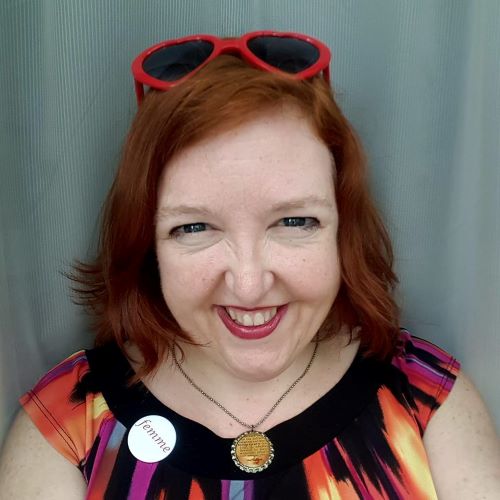The novel coronavirus pandemic has brought increased challenges to older adult populations in several directions. Elders are known to be at higher risk for contracting COVID-19, and are far more likely to face a serious course of the illness if infected. At the same time, isolation itself is a risk factor for physical and mental illness, cognitive deterioration, substance misuse, suicidal impulses, and creates barriers to accessing resources. LGBT Elders are less likely to be partnered or have children than other older adults, and are often estranged from their families of origin. Isolation, already a life-threatening condition, has reached extreme levels in LGBT Elder populations during the pandemic. This webinar will frame the unique challenges of reaching vulnerable LGBT Elders and offer practical strategies for engaging them in needed services, social opportunities, and essential support networks.
 Kate Bishop, MSSA, the Education Coordinator at the LGBT Health Resource Center of Chase Brexton, is a seasoned professional development trainer with expertise in working with LGBTQ populations, sexual and reproductive health care, adolescent development, intimate partner violence, and sexual trauma. She is certified as a trainer through GLSEN (Gay, Lesbian and Straight Education Network) as well as SAGE (Services and Advocacy for GLBT Elders). Before joining the Chase Brexton team, she developed the capacity building program at the University of Maryland School of Medicine’s STAR TRACK Adolescent HIV program, providing cultural responsiveness trainings for agencies that serve sexual minority youth of color. Ms. Bishop holds a Bachelor of Arts in Gender Studies from Hiram College and a Masters in Social Work from Case Western Reserve University.
Kate Bishop, MSSA, the Education Coordinator at the LGBT Health Resource Center of Chase Brexton, is a seasoned professional development trainer with expertise in working with LGBTQ populations, sexual and reproductive health care, adolescent development, intimate partner violence, and sexual trauma. She is certified as a trainer through GLSEN (Gay, Lesbian and Straight Education Network) as well as SAGE (Services and Advocacy for GLBT Elders). Before joining the Chase Brexton team, she developed the capacity building program at the University of Maryland School of Medicine’s STAR TRACK Adolescent HIV program, providing cultural responsiveness trainings for agencies that serve sexual minority youth of color. Ms. Bishop holds a Bachelor of Arts in Gender Studies from Hiram College and a Masters in Social Work from Case Western Reserve University.
This webinar is a collaboration between the Central East ATTC, the Central East MHTTC, and the Central East PTTC.